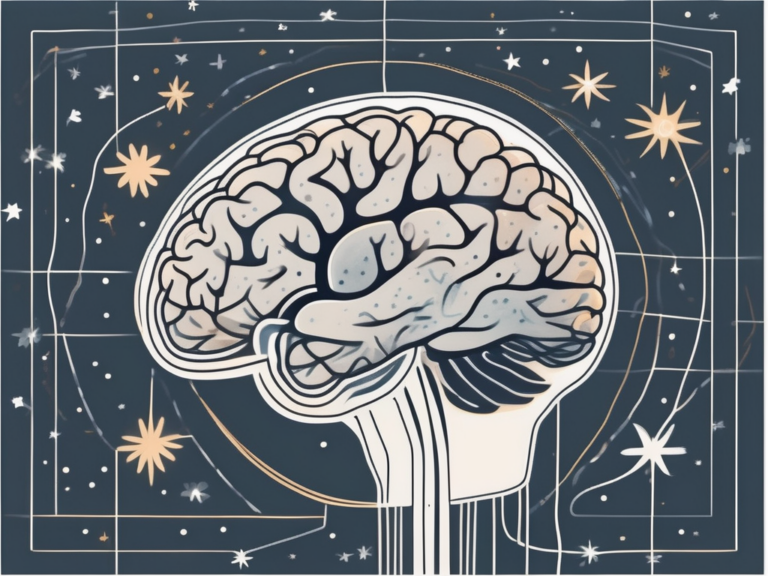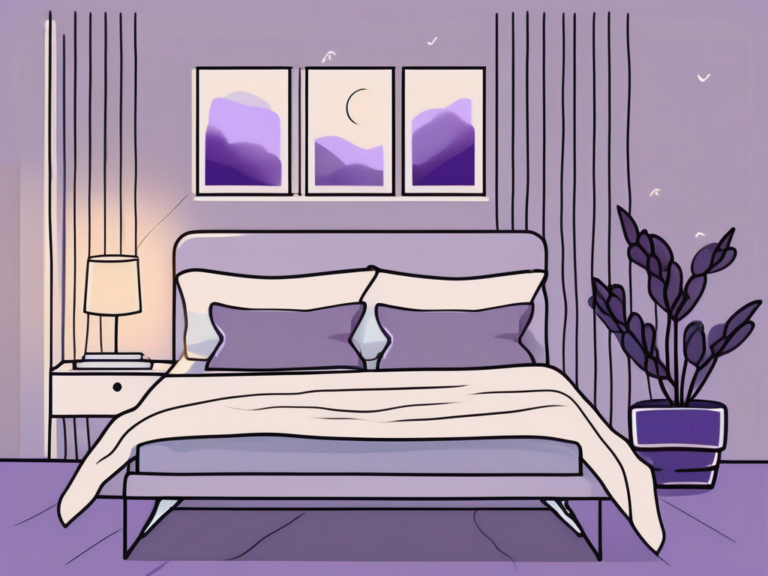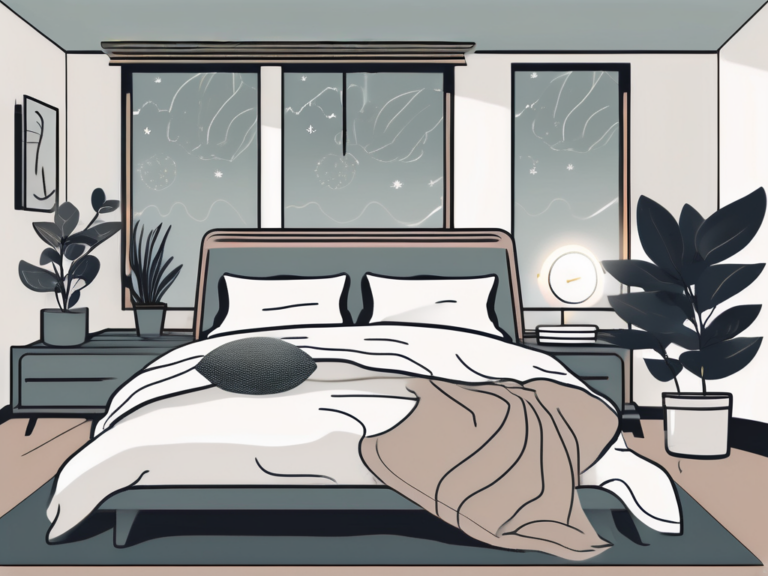Tips on How to Sleep Well: A Comprehensive Guide
Sleep is an essential aspect of our lives. It is during sleep that our bodies and minds rejuvenate, allowing us to wake up feeling refreshed and ready to take on the day. However, many people struggle with getting a good night’s sleep consistently. In this comprehensive guide, we will explore various tips and techniques to help you sleep well and improve the quality of your rest.
Understanding the Importance of Good Sleep
Before we delve into the techniques for better sleep, let’s first understand why sleep is so crucial for our overall well-being.
Sleep is not just a state of rest; it is a complex process that involves various stages, each serving a different purpose. When we sleep, our bodies go through a series of cycles that are essential for our physical and mental health. These cycles include non-rapid eye movement (NREM) sleep and rapid eye movement (REM) sleep.
NREM sleep consists of three stages: N1, N2, and N3. During N1, which is the lightest stage of sleep, our muscles relax, and our brain waves slow down. In N2, our brain waves continue to slow down, and our body temperature drops. This is the stage where our bodies begin to repair tissues, strengthen the immune system, and regulate hormones. Finally, in N3, also known as deep sleep, our brain waves slow down even further, and our bodies focus on physical restoration, such as repairing muscles and tissues.
REM sleep, on the other hand, is the stage where our brain activity becomes more active, resembling that of being awake. It is during this stage that we experience vivid dreams. REM sleep is crucial for cognitive processes, memory consolidation, and emotional regulation.
The Science Behind Sleep
Now that we have a basic understanding of the different stages of sleep, let’s dive deeper into the science behind sleep. Sleep is regulated by our internal body clock, also known as the circadian rhythm. This internal clock is influenced by external factors such as light and darkness, which help regulate our sleep-wake cycle.
When we sleep, our bodies produce and release various hormones that are essential for growth and development. One of these hormones is human growth hormone (HGH), which plays a vital role in tissue repair, muscle growth, and bone strength. Additionally, sleep is crucial for the regulation of other hormones, such as cortisol, which helps manage stress, and leptin and ghrelin, which regulate appetite and weight.
Health Benefits of Quality Sleep
In addition to its role in physical and cognitive processes, quality sleep is crucial for maintaining overall good health. Numerous studies have shown that getting sufficient sleep can have a profound impact on our well-being.
Firstly, quality sleep is essential for immune function. During sleep, our bodies produce and release cytokines, a type of protein that helps regulate our immune response. Sufficient sleep strengthens our immune system, making us more resilient to infections and diseases.
Furthermore, quality sleep is closely linked to mental clarity and cognitive function. When we sleep, our brains consolidate and process information, helping us retain memories and improve learning. Lack of sleep, on the other hand, can lead to difficulties with concentration, memory recall, and decision-making.
Moreover, getting enough sleep is associated with a lower risk of developing chronic conditions such as heart disease, diabetes, and obesity. Sleep deprivation can disrupt the balance of hormones involved in regulating blood pressure, blood sugar levels, and appetite, increasing the risk of these conditions.
So, as we can see, sleep is not just a luxury; it is a fundamental aspect of our well-being. Understanding the science behind sleep and the health benefits it provides can motivate us to prioritize quality sleep and make necessary changes to improve our sleep habits.
Identifying Sleep Problems
Recognizing when we are not getting enough sleep or experiencing sleep disturbances is the first step towards finding solutions. Let’s explore some common sleep problems and signs that indicate we may need to address them.
Common Sleep Disorders
There are various sleep disorders that can disrupt our sleep patterns, such as insomnia, sleep apnea, and restless leg syndrome. Understanding these disorders and their symptoms can help us identify if they are affecting our sleep quality.
Insomnia: This sleep disorder is characterized by difficulty falling asleep, staying asleep, or both. It can be caused by stress, anxiety, certain medications, or underlying health conditions. People with insomnia often experience daytime fatigue, mood disturbances, and decreased performance in daily activities.
Sleep Apnea: Sleep apnea is a condition where breathing repeatedly stops and starts during sleep. It can be caused by a blocked airway, neurological problems, or obesity. Common symptoms include loud snoring, gasping for air during sleep, morning headaches, and excessive daytime sleepiness.
Restless Leg Syndrome: This disorder is characterized by an irresistible urge to move the legs, usually accompanied by uncomfortable sensations. Symptoms tend to worsen during periods of inactivity or at night, leading to difficulty falling asleep. Restless leg syndrome can be caused by genetic factors, iron deficiency, or certain medications.
Signs You’re Not Getting Enough Sleep
Feeling tired or irritable throughout the day, having difficulty concentrating, experiencing frequent headaches, or struggling to stay awake at inappropriate times are some signs that our sleep may be inadequate. It’s crucial to pay attention to these signals and make necessary changes to improve our sleep habits.
Decreased Immune Function: Chronic sleep deprivation can weaken the immune system, making us more susceptible to infections and illnesses. It impairs the body’s ability to fight off pathogens, leaving us vulnerable to colds, flu, and other diseases.
Impaired Cognitive Function: Lack of sleep can negatively impact our cognitive abilities, including memory, attention, and problem-solving skills. It becomes harder to focus, retain information, and make decisions, affecting our overall productivity and performance in various aspects of life.
Creating an Ideal Sleep Environment
Our surroundings play a significant role in facilitating quality sleep. Let’s explore some tips on how to create an ideal sleep environment.
The Role of Your Bedroom
Our bedrooms should be a sanctuary for sleep. Keeping the room dark, quiet, and at a comfortable temperature can promote better sleep. Additionally, removing electronic devices and creating a clutter-free space helps cultivate a calm and soothing environment.
Choosing the Right Mattress and Pillow
The quality of our mattress and pillow directly affects our sleep comfort. Investing in a mattress that provides adequate support and a pillow that aligns our head and neck properly can significantly improve our sleep quality.
Now, let’s delve deeper into the importance of creating a dark sleep environment. Darkness is essential for triggering the release of melatonin, a hormone that regulates sleep and wakefulness. When our surroundings are brightly lit, it can interfere with the natural production of melatonin, making it harder for us to fall asleep and stay asleep throughout the night.
One way to achieve darkness in your bedroom is by using blackout curtains or blinds. These specially designed window coverings block out external light sources, creating a cave-like atmosphere that promotes deep and restful sleep. Additionally, consider covering any electronic devices that emit light, such as alarm clocks or chargers, as even the smallest amount of light can disrupt your sleep cycle.
Creating a quiet sleep environment is equally important. Noise disturbances, whether from outside traffic, a snoring partner, or a neighbor’s loud music, can disrupt our sleep and leave us feeling groggy and irritable the next day. To combat this, consider using earplugs or a white noise machine to drown out any unwanted sounds. Alternatively, you can try using a fan or a soothing sound machine that plays nature sounds, such as rainfall or ocean waves, to create a peaceful and calming atmosphere.
Establishing a Sleep-Enhancing Routine
A consistent sleep routine can help signal our bodies that it’s time to wind down and prepare for sleep. Let’s explore some nighttime rituals and habits that can enhance our sleep quality.
Nighttime Rituals for Better Sleep
Engaging in calming activities before bedtime, such as reading a book, taking a warm bath, or practicing relaxation techniques, can prepare both our bodies and minds for sleep. Establishing a soothing routine sends a signal to our brain that it’s time to unwind.
Creating a peaceful environment in our bedroom can also contribute to a better night’s sleep. Consider using soft lighting, playing soothing music, or using essential oils with relaxing scents like lavender or chamomile. These elements can help create a serene atmosphere that promotes relaxation and tranquility.
The Impact of Diet and Exercise on Sleep
Our eating habits and physical activity levels can influence our sleep quality. Consuming a balanced diet, avoiding heavy meals close to bedtime, and incorporating regular exercise into our daily routine can contribute to better sleep.
When it comes to diet, certain foods can have a positive impact on sleep. Foods rich in tryptophan, such as turkey, nuts, and seeds, can promote the production of serotonin, a neurotransmitter that helps regulate sleep. Additionally, avoiding caffeine and alcohol in the evening can prevent disruptions to our sleep patterns.
Regular exercise not only benefits our physical health but also plays a crucial role in improving sleep. Engaging in moderate-intensity aerobic activities, such as brisk walking or cycling, can help regulate our sleep-wake cycle and promote deeper, more restful sleep. However, it’s important to avoid exercising too close to bedtime, as the increase in body temperature and heart rate can make it harder to fall asleep.
Techniques for Falling Asleep Faster
From time to time, we may find it challenging to fall asleep quickly. Let’s explore some techniques and exercises that can help us drift off more easily.
Have you ever found yourself lying in bed, tossing and turning, desperately wishing for sleep to come? If so, you’re not alone. Many people struggle with falling asleep, especially when their minds are filled with thoughts and worries. Fortunately, there are techniques that can help calm our bodies and minds, paving the way for a restful night’s sleep.
Breathing Exercises for Sleep
Practicing deep breathing exercises and mindful breathing can help relax our bodies and calm our minds, making it easier to fall asleep. By focusing on our breath, we can promote a sense of tranquility and prepare ourselves for sleep.
One effective breathing exercise is called the 4-7-8 technique. Begin by inhaling deeply through your nose for a count of four. Hold your breath for a count of seven, and then exhale slowly through your mouth for a count of eight. Repeat this cycle several times, allowing each breath to become slower and more soothing. This technique not only helps regulate our breathing but also activates the body’s relaxation response, making it an excellent tool for falling asleep faster.
The Power of Visualization and Meditation
Using visualization techniques or practicing meditation before bed can quiet our racing thoughts and induce a state of relaxation, assisting us in falling asleep faster. By creating mental imagery or focusing on a specific object or sound, we can shift our attention away from stress and worries.
One visualization technique involves imagining yourself in a peaceful and serene setting. Close your eyes and picture yourself lying on a soft, sandy beach, feeling the warmth of the sun on your skin and hearing the gentle sound of waves crashing nearby. Allow yourself to fully immerse in this mental image, noticing the details and sensations. By engaging your senses and escaping into this tranquil scene, you can create a sense of calmness that prepares your mind for sleep.
In addition to visualization, meditation can also be a powerful tool for falling asleep faster. Find a comfortable position, close your eyes, and focus your attention on your breath. As thoughts arise, acknowledge them without judgment and gently bring your focus back to your breath. This practice of mindfulness can help quiet the mind and release any tension or anxiety that may be keeping you awake.
By incorporating these techniques into your bedtime routine, you can create a peaceful and conducive environment for falling asleep faster. Remember, it’s important to be patient and consistent with these practices, as they may take time to fully integrate into your sleep routine. So tonight, as you lay in bed, give yourself the gift of relaxation and embrace the possibility of a restful night’s sleep.
Managing Sleep Disruptions
Sleep disruptions can be frustrating and can occur due to various reasons. Let’s explore some strategies for managing common sleep disturbances.
Dealing with Insomnia
Insomnia is a sleep disorder characterized by difficulty falling asleep or staying asleep. This can be caused by a variety of factors, including stress, anxiety, or even certain medications. It’s important to address insomnia as it can have a significant impact on our overall well-being.
One effective strategy for managing insomnia is to develop healthy sleep habits. This includes maintaining a consistent sleep schedule, avoiding caffeine and stimulating activities before bedtime, and creating a comfortable sleep environment. By establishing a bedtime routine, such as reading a book or taking a warm bath, we can signal to our body that it’s time to unwind and prepare for sleep.
In addition to healthy sleep habits, relaxation techniques can also be helpful in combating insomnia. Deep breathing exercises, progressive muscle relaxation, and guided imagery are all techniques that can help relax the body and mind, making it easier to fall asleep and stay asleep throughout the night.
Overcoming Nighttime Anxiety
Anxiety or racing thoughts can interfere with our ability to fall asleep peacefully. It’s common to find ourselves lying in bed, unable to quiet our minds as worries and stressors consume our thoughts. However, there are strategies we can use to manage nighttime anxiety and promote restful sleep.
One effective technique is journaling. By writing down our thoughts and worries before bedtime, we can release them from our minds and create a sense of closure. This can help us let go of our anxieties and allow our minds to relax, making it easier to fall asleep.
Practicing gratitude is another powerful tool for overcoming nighttime anxiety. Taking a few moments before bed to reflect on the positive aspects of our day can shift our focus from worries to gratitude. This shift in perspective can help calm our minds and create a more peaceful state before sleep.
If nighttime anxiety persists and significantly impacts our sleep, it may be beneficial to seek professional help. A therapist or counselor can provide guidance and support in managing anxiety and developing coping strategies specifically tailored to our individual needs.
By implementing these strategies, we can effectively manage common sleep disruptions such as insomnia and nighttime anxiety. Remember, a good night’s sleep is essential for our overall well-being, and with the right tools and techniques, we can improve our sleep quality and wake up feeling refreshed and rejuvenated.
Seeking Professional Help
If sleep issues persist despite implementing various strategies, it may be time to seek professional help. Let’s explore when to consult a sleep specialist and the treatments and therapies available for sleep disorders.
When to Consult a Sleep Specialist
If sleep problems significantly impact our daily life or persist for an extended period, it’s advisable to consult a sleep specialist. These experts can diagnose and treat sleep disorders, providing personalized guidance to help improve our sleep quality.
Treatments and Therapies for Sleep Disorders
From cognitive-behavioral therapy to medication options, various treatments and therapies are available for sleep disorders. Collaborating with a sleep specialist can help determine the most suitable approach for addressing specific sleep concerns.
By implementing these tips and techniques, we can enhance our sleep quality and reap the benefits of a good night’s rest. Remember, improving sleep habits requires consistency and patience. So, start implementing these strategies gradually and allow your body and mind to adapt to healthier sleep patterns. Here’s to better sleep and a more rejuvenated you!






